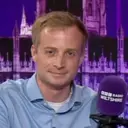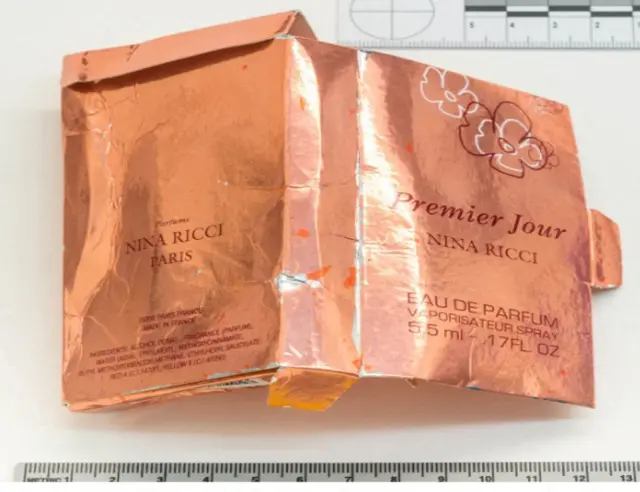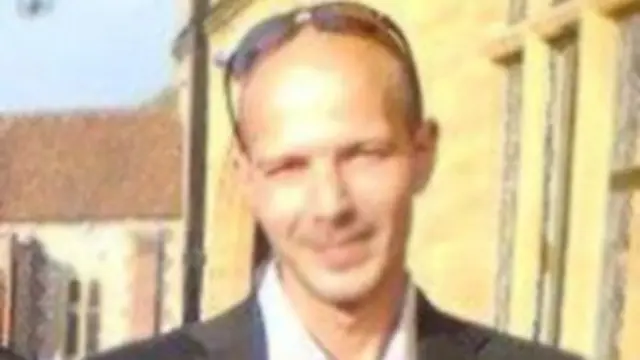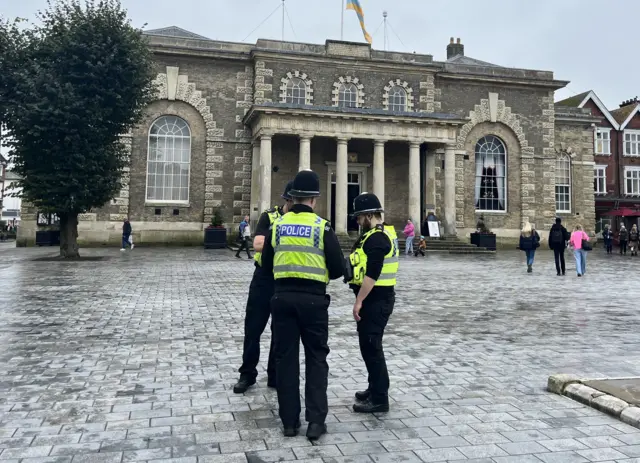'Contradictory statements' - analysispublished at 12:18 BST 16 October 2024
 Dan O'Brien
Dan O'Brien
Reporting from Salisbury Guildhall
While Charlie Rowley may appear in some form later in the inquiry, today’s evidence is about going over his various statements and police interviews.
He describes how he and Dawn tried to open the glass perfume bottle. It was wrapped in thick sealed plastic, they could only get in using a knife. Surely a detail to which the inquiry will return to later.
When they managed to get into it, it spilt over his hands, describing an oily feel Dawn later rubbed it on both her wrists.
But he cannot remember where he got the perfume from. In one interview he suggests a few days earlier, in others he can’t remember at all.
A combination of the poisoning itself, and he says his own addictions to drugs and alcohol, have had a considerable impact on his memory. Several of his statements are contradictory.
The inquiry this morning has been shown lots of CCTV and statements setting out Dawn and Charlie’s movements on the day before they became ill, leaving Dawn’s flat in Salisbury, buying alcohol and a picnic blanket, heading to a local park.
Later, they catch a bus to Amesbury where Charlie lived.
None of it reveals any clue as to where the poison came from, something we are told the inquiry will return to later on.


